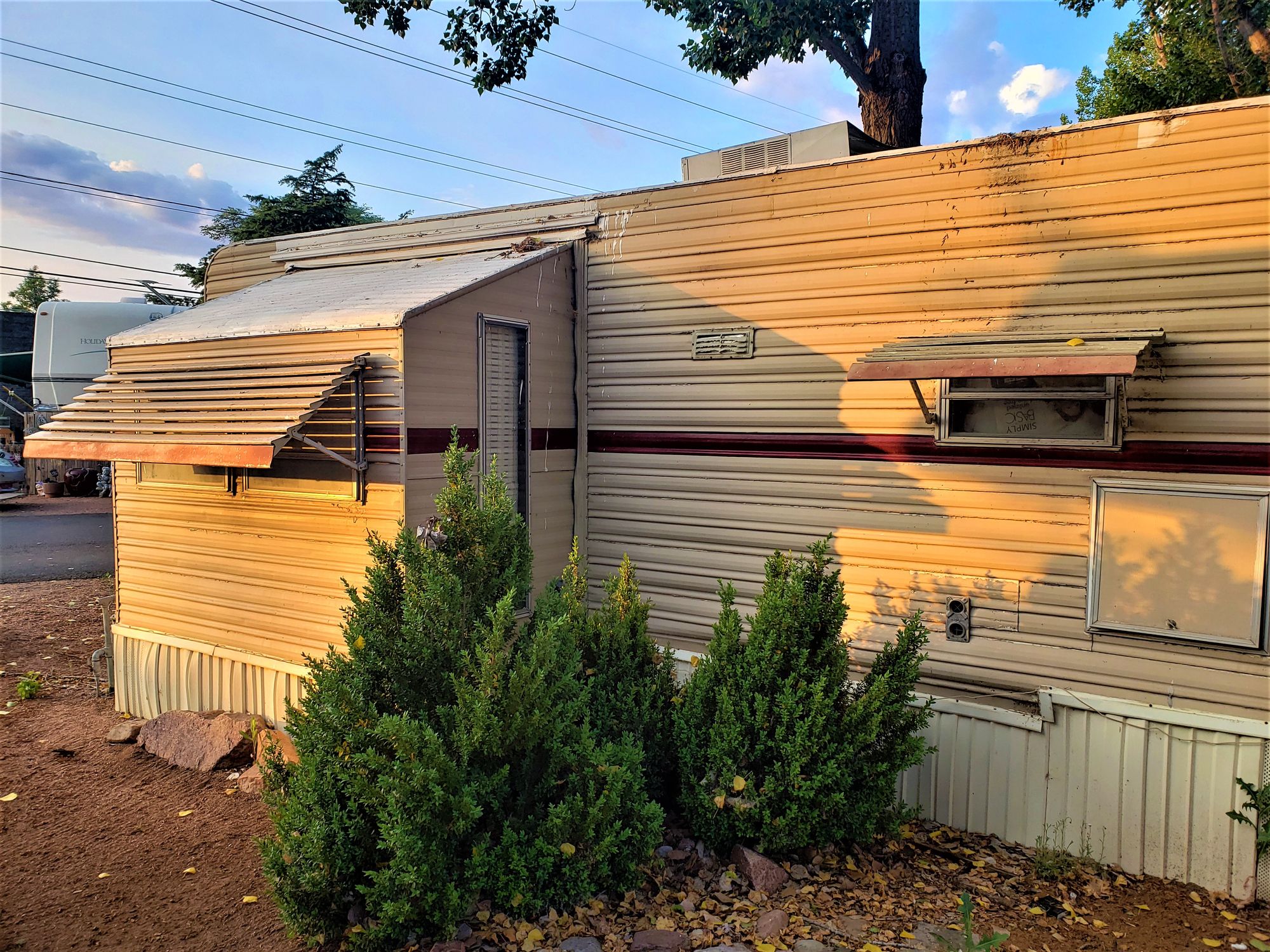Park Model: The Emerging Tragedy of Mobile Home Ownership

Since beginning an odyssey of RV life, I’ve been privileged to meet a variety of people, young families living in trailers at the KOA, fellow retirees traveling in the most adventurous and economical manner, and wealthy snowbirds touring the country in class A motorhomes, off-road vehicles in-tow. The diversity one finds among nomads is nothing short of amazing. On one occasion, I discovered yet another segment of the population, as I stayed at an RV resort in Payson, Arizona.
In all honesty, the place is not a “resort” but a trailer park in a small town. There is a very nice clubhouse at the back of the property, where donuts and coffee are served on Friday mornings, and the laundry room has an abundance of machines. Still, however, the image of resort life—where umbrella drinks and luxurious accommodations prevail—is nowhere to be found. And there is absolutely nothing wrong with that, although one has certain expectations upon making a reservation. Anyway, I digress. As I began my stay for the summer season, escaping the heat of Phoenix, I discovered the world of mobile homes.
Rooted to a Concrete Foundation
Upon arriving, I took note of the many “park models” I saw at the “resort,” the manufactured dwellings available for purchase, all of which sit on rented land. Now, consider that most homebuyers in this market are retirees, with limited incomes, and you have a recipe for gross exploitation. I was told by some residents that the park's new owners continue to increase rent, beyond what their pensions can bear, leaving them with few options.
One woman, a 73-year-old who works part-time to supplement her income, expressed her concerns to me. Her home would cost upwards of ten thousand dollars to move. Another woman, who cares for her 92-year-old husband, faces a similar problem. Her plan is to move into a renovated van after he passes, the land under their home rapidly becoming unaffordable. Exactly what will become of their house, a fifth wheel rooted to a concrete foundation, remains unclear. Indeed, the scene is more complicated than it appears on the face of things.
Although the land is leased, the homes can be sold by their owners, at least in theory. However, locating a buyer for a rapidly depreciating structure, someone who is willing to accept a potentially unfavorable rental agreement, is not the best solution. That said, I did find a number of residents who were very happy with their situations. In today's rental market, if the landlord chooses to be gracious, you are in luck. If not, you could face a very big--potentially immobile--problem. And what does this reveal about the future and the prospects of succeeding generations?
Communitarianism in Perspective

Our cherished American Dream is now assuming new and less agreeable characteristics, on many levels. The once lustrous goal of postwar life--working to purchase a home and retire with peace of mind--has grown dull, fading from vibrant hues of hope and fulfillment to the grayness of economic decline. Communitarianism, the emerging blend of capitalism and communism, is well exemplified by mobile home parks; you purchase a house of questionable quality, and watch as it depreciates, this, as the land it occupies becomes more and more valuable. When you can no longer afford to lease the property under your home, you might be forced to walk away with nothing--or, at best, perilously little.
Communitarianism, as an underlying social system, ensures downward mobility, coercing you to purchase things you can never really own. We first saw its impact on the housing market with condominiums and HOA costs. However, at least with a condo, you will likely have a home worth selling or leasing. With a park model, you will reap no such benefits.
Into the Future
The plight of mobile home purchasers is bleak, but it mirrors the troubles felt by so many segments of society. Now, as the corporate government quietly makes ownership of land and houses increasingly difficult, especially for the elderly, we must carefully scrutinize marketing schemes before they come to fruition. With this in mind, RV resorts (marketed to people 55 and over) need to be researched carefully, before one signs the paperwork. Cheerful website photos are likely concealing endless rent payments--the chance to purchase a home you can never really own.
Although mobile home parks are not new, their increasing influence in the marketplace is unique to our time. It highlights a rather alarming situation, the trend of owning nothing and bequeathing little, as the prosperity of previous generations fades into memory.
